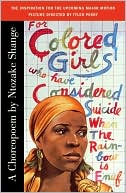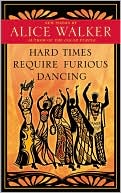Native Guard
Through elegiac verse that honors her mother and tells of her own fraught childhood, Natasha Trethewey confronts the racial legacy of her native Deep South—where one of the first black regiments, the Louisiana Native Guards, was called into service during the Civil War. Trethewey's resonant and beguiling collection is a haunting conversation between personal experience and national history.\ \ \ Winner of the 2007 Pulitzer Prize for Poetry\
Search in google:
Through elegiac verse that honors her mother and tells of her own fraught childhood, Natasha Trethewey confronts the racial legacy of her native Deep South -- where one of the first black regiments, the Louisiana Native Guards, was called into service during the Civil War. Trethewey's resonant and beguiling collection is a haunting conversation between personal experience and national history.The washington Post - Darryl Lorenzo WellingtonTrethewey's style is reserved, even cautious, though her subjects are emotionally charged, even violent. This creates an interesting dichotomy, especially in poems such as "Pastoral" with its touchy image of Trethewey confronting the great white Southern poets -- Allen Tate, Robert Penn Warren and others -- while in blackface. Though this is her third book, Trethewey is still perfecting her voice and may have only scratched the surface of her remarkable talent.
Theories of time and space1The southern crescent5Genus Narcissus7Graveyard blues8What the body can say9Photograph : ice storm, 197110What is evidence11Letter12After your death13Myth14At dusk15Pilgrimage19Scenes from a documentary history of Mississippi211King Cotton, 19072Glyph, Aberdeen 19133Flood4You are lateNative guard25Again, the fields31Pastoral35Miscegenation36My mother dreams another country37Southern history38Blond39Southern gothic40Incident41Providence42Monument43Elegy for the native guards44South45
\ Darryl Lorenzo WellingtonTrethewey's style is reserved, even cautious, though her subjects are emotionally charged, even violent. This creates an interesting dichotomy, especially in poems such as "Pastoral" with its touchy image of Trethewey confronting the great white Southern poets -- Allen Tate, Robert Penn Warren and others -- while in blackface. Though this is her third book, Trethewey is still perfecting her voice and may have only scratched the surface of her remarkable talent.\ — The washington Post\ \ \ \ \ Publishers WeeklyTrethewey (Domestic Work) draws on the life of her deceased mother and on the history of Mississippi, where the poet and her mother's family grew up, to limn a multiracial South and her own multiracial heritage. One poem tries to preserve her mother's memory ("certain the sounds I make/ are enough to call someone home"); the title poem's set of linked sonnets, where the last line of each one becomes the first line of the next, presents black Union soldiers who "keep/ white men as prisoners-rebel soldiers,/ would-be masters." A pantoun remembers the night Trethewey's family discovered a burning cross on her lawn; the concluding poem condenses the poet's mixed-and compelling-feelings about "Mississippi, state that made a crime// of me-mulatto, half-breed, native-/ in my native land, this place they'll bury me." (Mar.) Copyright 2006 Reed Business Information.\ \ \ KLIATTAGERANGE: Ages 15 to adult. \ “You can get there from here, though / there’s no going home. / Everywhere you go will be somewhere / you’ve never been.” With these provocative lines, Trethewey opens this slender collection and subconsciously sums up our reading experience at once. In a mere 26 poems she generates a convincing physical presence of the South, a poignant reflection on the Civil War and a personal contemporary world forever tied to it. As multifaceted and encompassing as this material is, however, her presentation is at the heart of this volume’s success. Perhaps because it is couched in a clear, disarmingly simple narration, Trethewey’s lyrical subtlety is both effective and surprising. “She is leaving behind / the dirt roads of Mississippi, the film / of red dust around her ankles, the thin / whistle of wind through the floorboards / of the shotgun house, the very idea of home.” And, despite her deep rooting in the perplexing concrete of place, history and her relationship to it, she transcends that world to challenge the indescribable, the unknowable. “What matters is context-- / the side of the road, or what my mother wanted / something I still can’t name: what, kneeling, / my face behind my hands, I might ask of God.” Native Guard, Trethewey’s third volume, attests to the many honors bestowed upon her, testifies to the skills and sensitivities of her artistic abilities. This is a strong example of what contemporary poetry can be. Reviewer: James Beschta\ March 2008 (Vol. 42, No.2)\ \ \ \ \ \ Library JournalInaugural winner of the Cave Caen Poetry Prize, Trethewey uses her third collection to explore Southern history, focusing her steadfast prose on African Americans mustered into the Union Army. Copyright 2006 Reed Business Information.\ \







